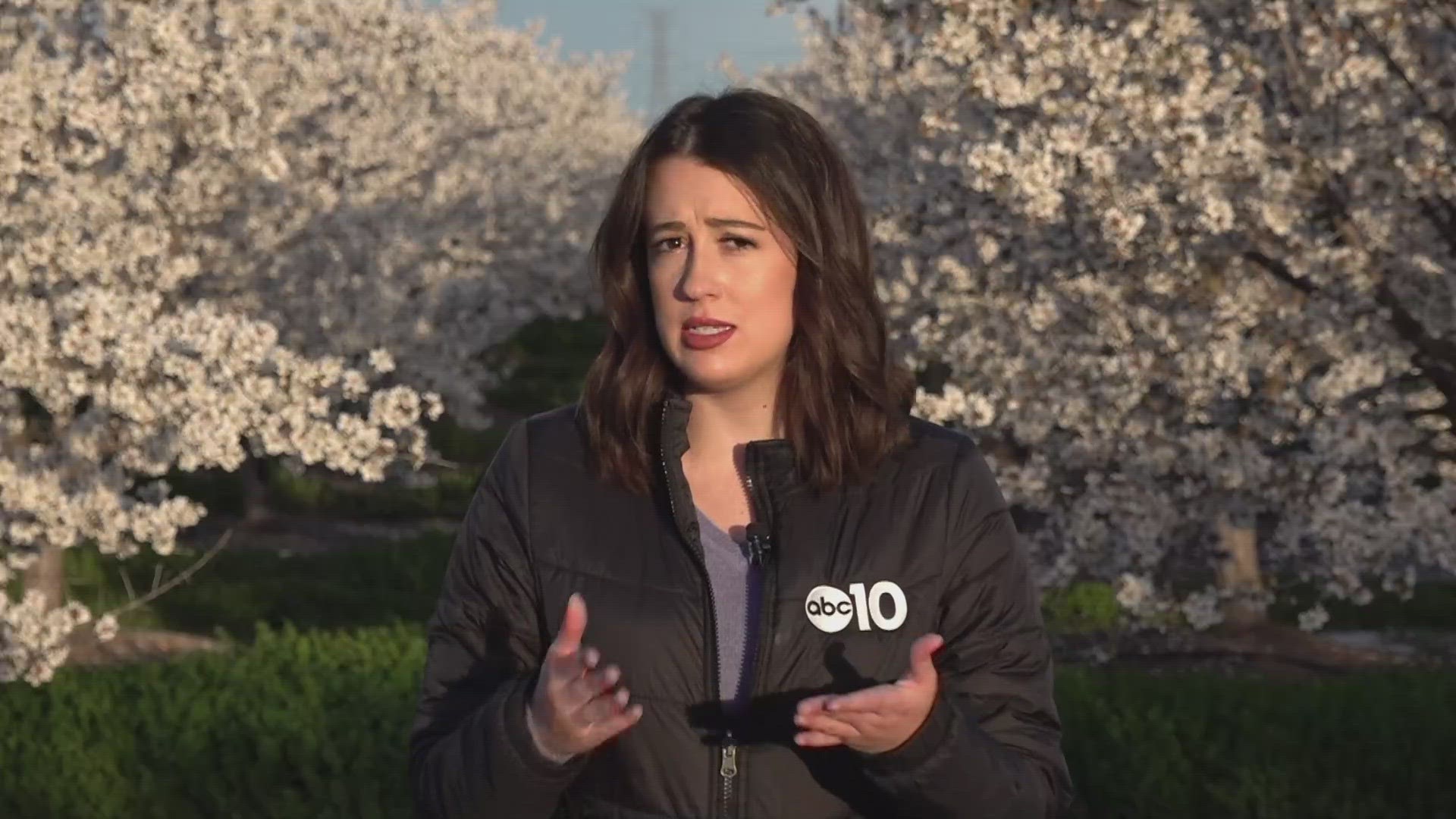SAN JOAQUIN COUNTY, Calif. — California’s almonds and some other nuts are under attack by a recently discovered invasive beetle. Farmers and some lawmakers are worried about the impact to the Central Valley's crops.
The carpophilus beetle (Carpophilus truncatus) have been found in: Stanislaus, Merced, Madera and Kings counties, and possibly San Joaquin County.
The team responsible for finding the beetle told ABC10 it’s not just almonds anymore — there are also confirmed findings in pistachios and walnuts.
California produces 2.6 billion pounds of almonds a year, according to California Almond Board. Those come from 1.64 million acres of almond orchards across the state, according to the United States Department of Agriculture.
Representative Josh Harder is concerned about the impact of the bug on San Joaquin County.
"The Central Valley is the fruit and nut basket — not just of California and the United States but the entire world. (A quarter) of all of our nations agriculture comes from the Central Valley products, including all the nuts we have," said Harder.
Growers reported the beetles in September to Jhalendra Rijal and his team at the University of California Agriculture and Natural Resources Department.
"We don’t know how this came and when actually because the extent of the damage we are seeing in 2023 doesn’t seem like it’s just from that year," said Rijal.
They do know the beetle wreaked havoc on almond farms in Australia for the last decade.
"Anywhere from 2% to 5% damage they can see in most of the orchards, in almonds," said Rijal.
Rijal’s team estimates a 1% infestation of crops would be a multimillion-dollar loss for the almond industry in California.
One main issue is the beetle doesn’t respond to pesticides because it hides inside the almond. The beetle tunnels through the nut while eating the meat and lays its eggs on the shell. This leaves behind less product overall and a lower quality that can’t be sold at the market.
It’s why Congressman Josh Harder is now pushing for emergency United States Department of Agriculture funding for farmers.
"The most important step is to make sure we are fully resourcing the health inspection service and going through every single orchard in the Valley to know where this beetle is and the second this is, we need to support farmers for their crop loss," said Harder.
Harder also wants the federal government to fund the cleanup because the beetle lives in uncollected nuts on the ground during the winter, which means they will attack the new fruit in spring.
Eradication of leftovers on the ground is the best hope for farmers. Farmers say they will have a better idea of the impact on their crop come April.



















